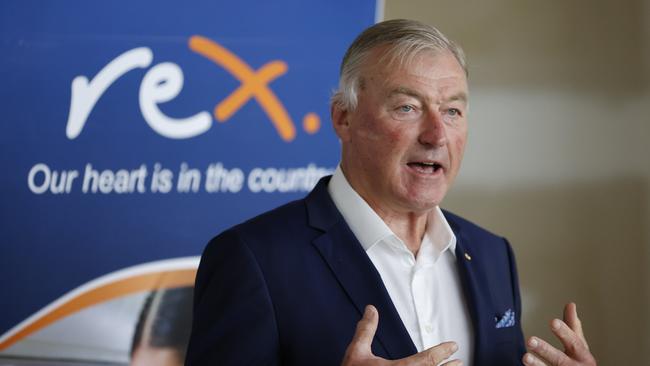Rex posts $36.7M half year loss despite big jump in passengers
More passengers and bigger aircraft have not helped Rex to climb out of the red in the first half of the 2022 financial year.

An 82 per cent increase in passengers has not been enough to get Rex back into the black, with the airline reporting a $36.7m loss for the first half of the 2022 financial year.
The result was down on a $9.9m profit in the previous corresponding period and was attributed to disruption to flying due to Covid-19 outbreaks.
Although passengers surged from 190,000 to 346,000 over the six months, or 82.1 per cent, passenger revenue increased 60.5 per cent due to cheaper airfares amid fierce competition among Rex, Virgin Australia and Jetstar.
The use of bigger aircraft on more routes saw load factors fall from 60.7 per cent to 53.4 per cent in the half, and the fuel bill soared 124 per cent due to higher oil prices and more flying.
Rex’s bottom line was also hit by a smaller contribution from government, with grants and subsidies totalling $28m compared to $59m in the previous corresponding period.
No guidance was offered for the full year, with Rex executive chairman Lim Kim Hai pointing to “extreme volatility” in the market particularly due to Russia’s invasion of Ukraine.
In his presentation to investors, deputy chairman John Sharp said unlike Qantas, Rex was not expecting a strong rebound in demand for air travel.
“Unfortunately Covid is not going away in a hurry. The chance of more Covid positive cases is likely to increase as we have seen in other parts of the world, and we would expect to see that here,” Mr Sharp said. “We think recovery will occur but it will be subdued.”
He added there would be no interim dividend.




To join the conversation, please log in. Don't have an account? Register
Join the conversation, you are commenting as Logout